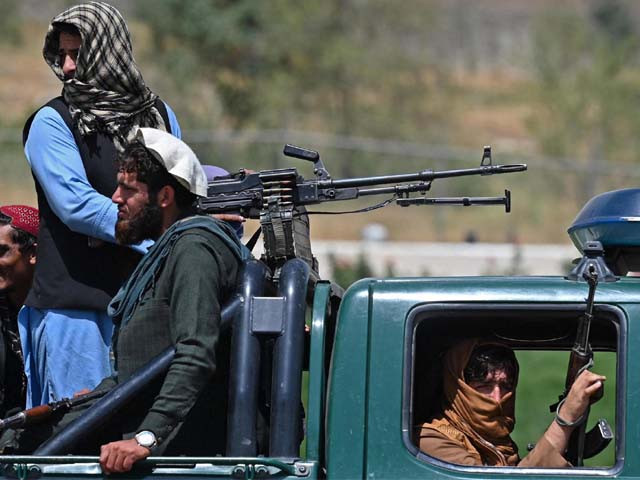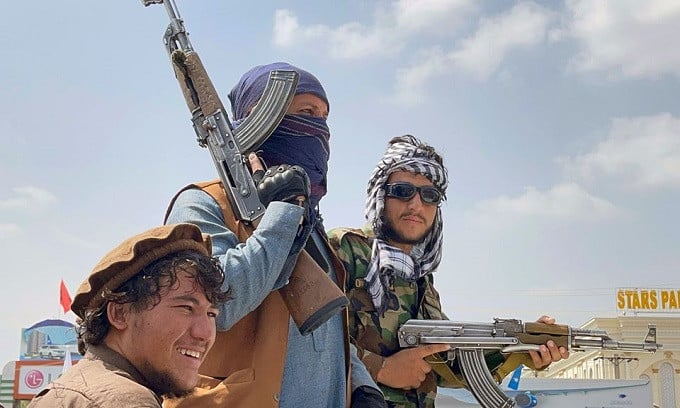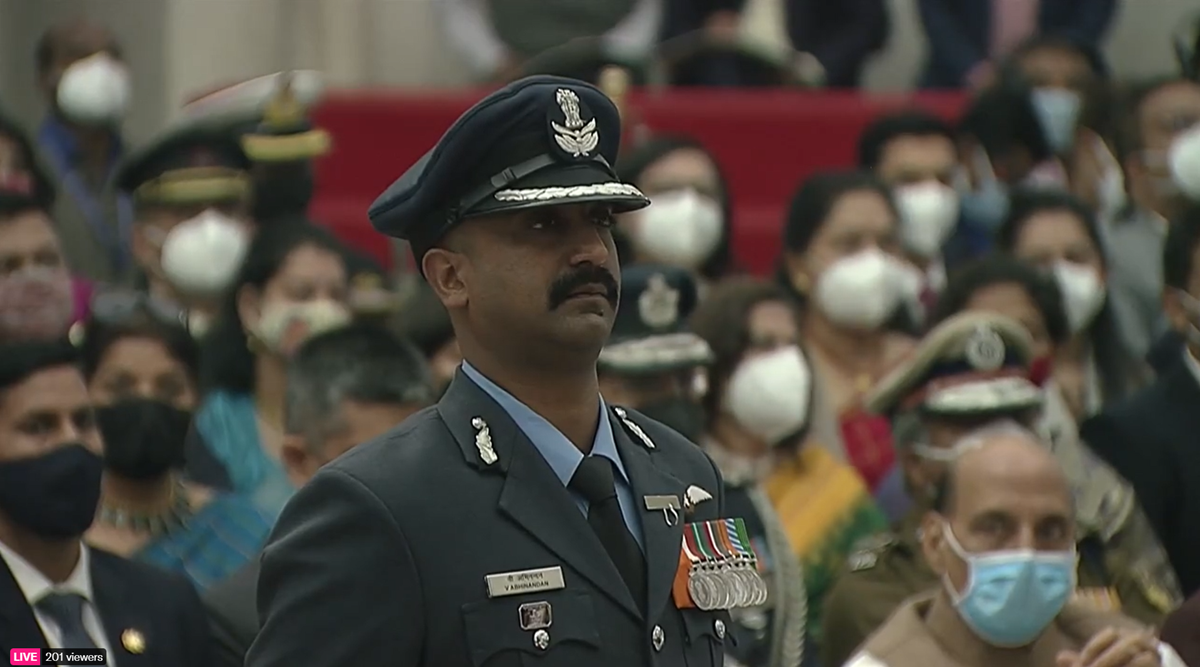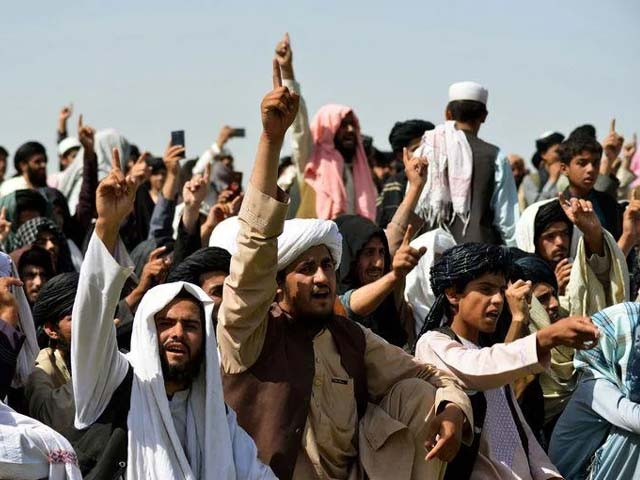
Should the US rely on the Taliban instead of airstrikes to fight ISIS-K?
The US is increasingly concerned about the growing capabilities of the ISIS-K terrorist group after last week’s attack at the Kabul Airport. It’s since launched two separate strikes against its members, the first of which was against some of that attack’s alleged organisers while the second was in downtown Kabul and targeted a terrorist that was reportedly on his way to carry out another suicide attack at the airport. That second strike, however, ended up killing nine members of a single family according to reports.
Taliban spokesman Zabihullah Mujahid told China’s CGTN on Monday that these strikes were “illegal” and “arbitrary”, suggesting instead that “the US should have reported it to us, rather than conduct an arbitrary attack that has resulted in civilian casualties.” That’s a sensible proposal too since US President Joe Biden told Americans last Thursday that ISIS-K is “an arch-enemy of the Taliban” and that his country even passed along the names of Americans traveling to the Kabul Airport to the Taliban so that they could pass their checkpoints.
The American leader earlier clarified in his speech that he doesn’t trust the Taliban but is relying on its “self-interest” in ensuring that “ISIS-K does not metastasize beyond what it is, number one. And number two, it’s in their interest that we are able to leave on time, on target.” This is an accurate reflection of current US-Taliban relations, but that makes it all the more curious why Biden didn’t want to outsource his country’s latest anti-ISIS-K operations to the Taliban.
It seems to be the case at least at this sensitive point in time so shortly after last week’s terrorist attack that the US wants to show its people that it’s “leading from the front” when it comes to carrying retributive operations against ISIS-K. After all, Biden also told the American people during Thursday’s speech that “We will respond with force and precision at our time, at the place we choose, and the moment of our choosing.” He therefore couldn’t depend on the Taliban for that before the withdrawal ends without provoking another scandal.
Looking forward, however, Russian Special Presidential Envoy for Afghanistan Zamir Kabulov warned that more American strikes in Afghanistan “should not be ruled out” while speaking to the press on Monday. He didn’t directly say so, but it can be interpreted that he might have sought to imply that the US could exploit ISIS-K as a pretext for carrying out more attacks there, perhaps to boost Biden’s plummeting approval rating ahead of next year’s midterms by distracting from his disastrous withdrawal. That scenario could arguably prove destabilising.
In terms of the bigger picture, it would be best for the US to share its intelligence about ISIS-K with the Taliban. America of course has domestic soft power interests in flexing its anti-terrorist capabilities in post-withdrawal Afghanistan, especially those self-interested ones related to improving Biden’s popularity at home, but it’s better for it to respect the Taliban’s de facto leadership over Afghanistan if there’s ever to be any hope for a meaningful rapprochement between these hated enemies.
The Taliban doesn’t want any problems with the US after it finally leaves Afghanistan. In fact, it would prefer for America to reconstruct the country as a form of reparations. Washington has an interest in doing this because it hopes that February’s agreement to construct a Pakistan-Afghanistan-Uzbekistan (PAKAFUZ) railway with its three “New Quad” partners will help it geo-strategically reshape the region by expanding its economic influence through post-withdrawal Afghanistan to the Central Asian Republics.
For that to happen, though, the US must first recognise Afghanistan’s de facto Taliban-led government as legitimate. That hasn’t yet occurred for two primary reasons. Firstly, it’s too domestically sensitive of an issue immediately after the US’ disastrous withdrawal, and secondly because it hopes to use this as an incentive for the Taliban to keep its prior promises to cut ties with international terrorist groups, assemble an inclusive government, and respect minorities’ and women’s rights.
If the US continues bombing ISIS-K, however, then it’ll make it more difficult for the Taliban to agree to the formal establishment of bilateral relations. The group would regard this as a slap in the face of its sovereignty claims, especially after its latest statement. It can’t be seen as desperate to enter into official ties with the US, nor does it actually even need to do so anyhow. The Taliban hopes to receive much-needed economic, financial, and investment aid from China, Russia, and others that can potentially compensate for US aid.
Still, it’s best for everyone that the US and the Taliban enjoy pragmatic relations sometime in the future focused on their shared security and development interests. Not doing so could dangerously lead to the scenario wherein the US continues bombing Afghanistan under the ISIS-K pretext but ends up “coincidentally” targeting Chinese, Russian, or other countries’ investments there. It’s those countries that rely more on their new partner’s connectivity and mineral prospects than the US, which can indefinitely wait to utilise PAKAFUZ.
China, Russia, and others, however, have a more pressing interest in reconstructing Afghanistan than the US does. America might only stop bombing ISIS-K on its own terms, not the Taliban’s, whatever they might ultimately end up being. Speculatively speaking, these might include preferential reconstruction and mineral extraction contracts for its companies in order to gain an edge over their Chinese, Russian, and other competitors. Only then might the US completely outsource its anti-ISIS-K operations to the Taliban.
The only possible scenario that could offset the one that was just described above is if China, Russia, and/or others reverse their current designation of the Taliban as terrorists by recognising them as Afghanistan’s legitimate authorities before the US does and then provide the country with anti-air capabilities for deterring these attacks. That, however, doesn’t appear to be realistic since there’s still a palpable fear among the international community about the Taliban’s grand strategic intentions and whether they’ve truly changed.
For these reasons, Mr. Kabulov’s warning about more American strikes against Afghanistan will probably come to pass even though it remains to be seen how regularly it’ll strike that country and whether it’ll even do so for legitimate anti-terrorist reasons. The US isn’t likely to completely outsource its anti-ISIS-K operations to the Taliban until it gets something tangible in return, though it’s unclear exactly what that might be. All that can be hoped for until then is that the US doesn’t kill too many civilians or targets other countries’ investments.




COMMENTS
Comments are moderated and generally will be posted if they are on-topic and not abusive.
For more information, please see our Comments FAQ